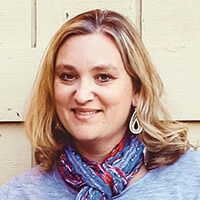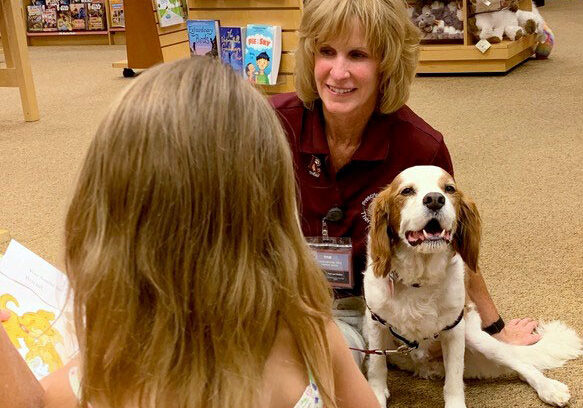Having a sibling with special needs is a unique experience that provides both challenges and benefits to children. While there is no doubt that they love their sibling with special needs, the feelings that arise during a shared childhood are often complicated. The love, appreciation, and compassion they feel towards their sibling can be mixed up with jealousy, worry, resentment, fear, responsibility, and anger. Parents who are in tune with their children’s feelings can help them work through the negative emotions and turn these challenges into benefits.
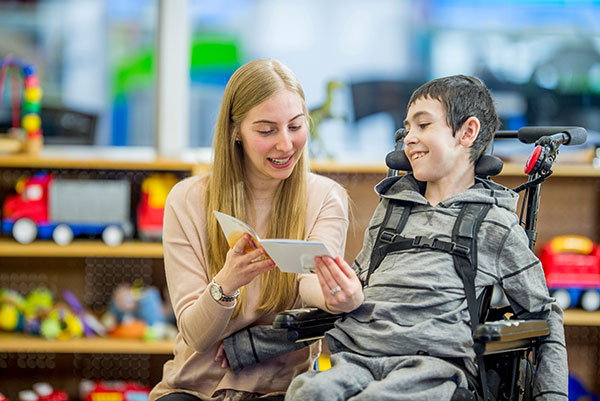
Challenge: Insensitivity of others
Unfortunately, kids with special needs are often the target of teasing. Kids, or even adults, who don’t understand other people’s differences may make insensitive comments, ask inappropriate questions or make fun of someone who is different from them. Siblings of special needs kids may feel the need to constantly stand up for their sibling, explain their situation to others or may even become the brunt of teasing themselves. “One of the biggest challenges in growing up with my sister was watching her get laughed at,” says Justin Lyons, brother of Kara, who has cerebral palsy. Parents can help their kids work through this challenge by equipping them with the right answers for those awkward questions and teaching them how to handle bullying in an appropriate way.
Benefit: Development of dependability, loyalty, and compassion
After years of watching someone they love get teased, siblings of special needs kids will naturally develop a strong sense of loyalty to those they care about as well as a strong compassion towards others. Even though watching Kara get teased was hard for Justin, he also notes, “I think it made me less likely to laugh at or tease other people.” Kids who grow up in a home with a special needs sibling oftentimes become dependable, compassionate and loyal adults.
Challenge: Jealousy
Parents do their best to treat their children fairly and spend equal amounts of time caring for each child. When you have a child with developmental delays or significant medical needs, that balance can become extremely difficult to achieve and jealousy can develop. Kids may feel they get less attention or that their parents spend more time caring for the sibling. When these feelings develop it is very common for kids to feel guilty that they have these thoughts, causing them to be more upset and resentful. As a parent, try to be understanding and patient about your child’s feelings of jealousy. Talking it through and having someone listen and take them seriously will help your child feel loved and included. If possible and appropriate, welcome your child to join you in caring for the sibling, but don’t push the issue.
Benefit: Self-control and thoughtfulness
First, it is important to remember that sibling rivalry and feelings of jealousy are normal in any sibling relationship. As your child learns to wait for their parent to be free to help them, they will learn patience and self-control. They will also learn to put other’s needs before their own.
Challenge: Worry and fear
When children are around a sibling with serious medical challenges, lowered immunity or special needs, kids may feel worried or afraid about the health of their sibling. They may not be able to express their feelings the same way that an adult would. Kids may act out, become overly emotional or appear aloof to what is going on around them. Parents can help kids by being honest about health concerns in an age-appropriate way. By including your child in this discussion, you can reduce their fear of the unknown and reassure them as well.
Benefit: Develop compassion and empathy for others
Kids who are exposed to someone with medical and developmental challenges naturally become more compassionate and empathetic to those who may have their own struggles. “I attribute my sense of understanding and compassion to my sister,” says Michelle Hupp, sister to Felicia, an adult with Down Syndrome.
Challenge: Complicated and mixed feelings
As each person is different, kids have a variety of feelings related to their sibling with special needs. Some kids may feel pressure to “live up” to their parents’ expectations for themselves and for the sibling who may never reach certain milestones. Kids may also feel resentment, anger, frustration or that they are “missing out” on activities or experiences because their sibling’s care puts restrictions on certain activities. “Siblings often feel guilty about any negative feeling such as jealousy,” says Hupp. “The rewards more than outweigh the negatives but sometimes the negatives are hard to talk about.” None of these feelings are fun to talk about and often result in guilt causing the children to feel even more resentment toward the sibling because they have these negative feelings. Some of these feelings may be difficult to overcome and a parent may not know exactly what their child is feeling or how to deal with these emotions. If you feel that these feelings are becoming a problem, consider seeking professional help to support your child’s development in a healthy way and encourage an appropriate relationship between your children.
Benefit: A variety of positive characteristics develop
While all these challenges are realistic, kids also develop a wide variety of wonderful characteristics from this situation such as kindness, patience, compassion, acceptance of differences, helpfulness and empathy. All these qualities are wonderful and valued in our society.
Being a sibling of a special needs person is a unique and sometimes challenging experience, but most people will tell you they have benefitted from it. As a parent, it helps to think of the long-term benefits, helping your child shape their challenges into successes.
Posted in: Special Needs
Comment Policy: All viewpoints are welcome, but comments should remain relevant. Personal attacks, profanity, and aggressive behavior are not allowed. No spam, advertising, or promoting of products/services. Please, only use your real name and limit the amount of links submitted in your comment.
You Might Also Like...
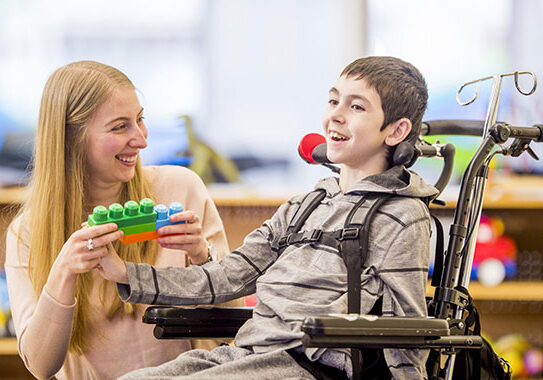
10 Things Every Autism Parent Should Know
Words of Wisdom for Special Needs Parents, From Special Needs Parents Like most parents of children with special needs, author Gabrielle Kaplan-Mayer found herself navigating uncharted waters when her son […]
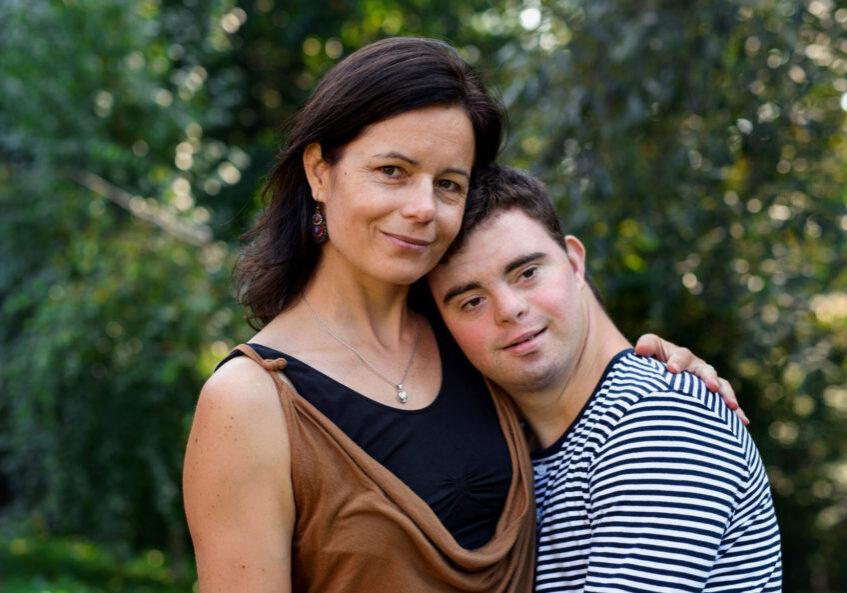
How to Talk to Young Kids About Disabilities and Differences
For many parents, the first time their child asks about or points out a person with a disability in public is an awkward experience. Even if the child already has […]
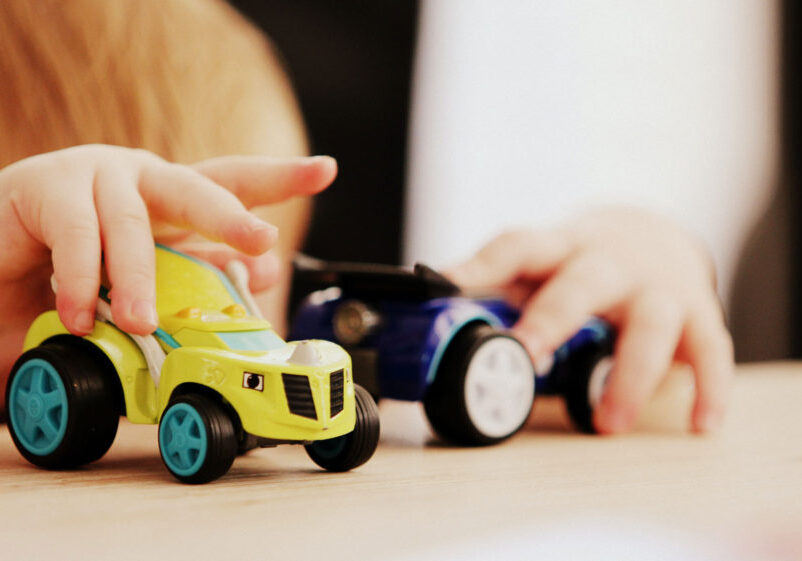
Creating a Sensory Space at Home
Our brains are designed to produce and regulate responses to our body’s sensory experiences (sight, smell, touch, hear, and taste). For individuals with developmental disorders such as autism, the way […]

Red Bluff’s Big Splash Project – Creating An Inclusive Place For Children Who Love The Water
Sidelined by the pandemic, and now back on track Over the last year, the COVID-19 pandemic has taken a tremendous toll on local businesses and community endeavors, and The Big […]


